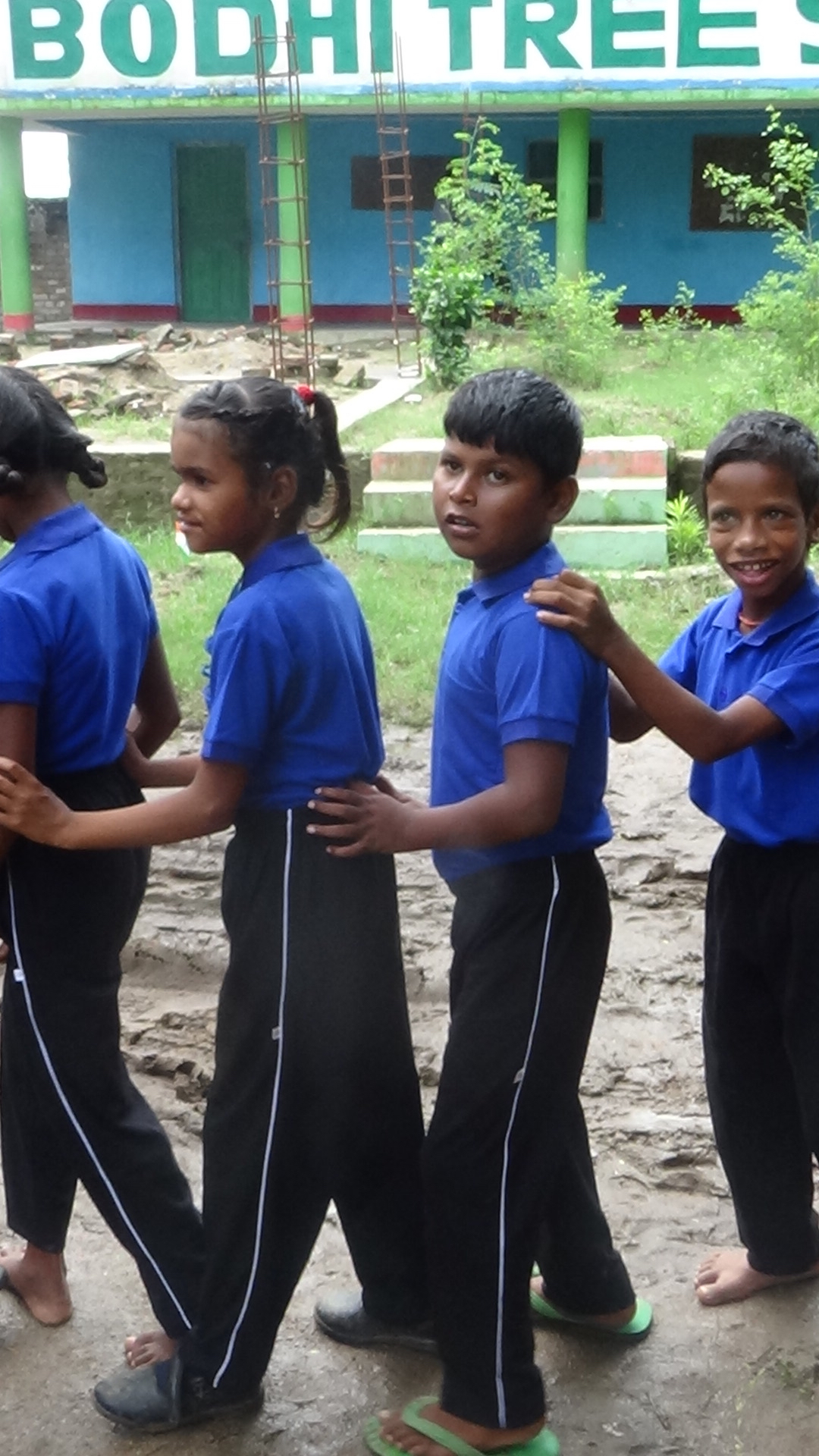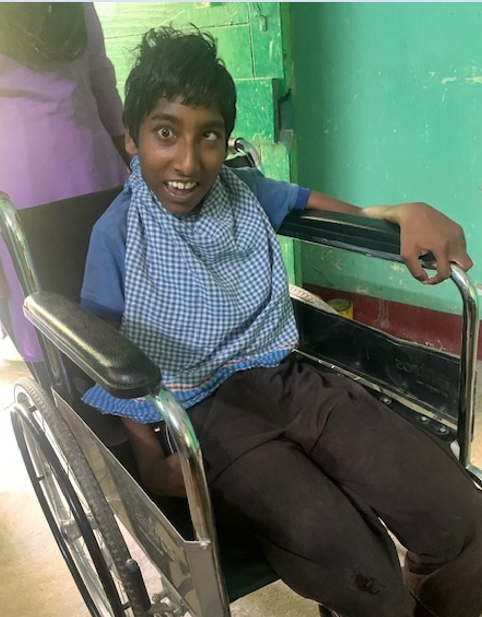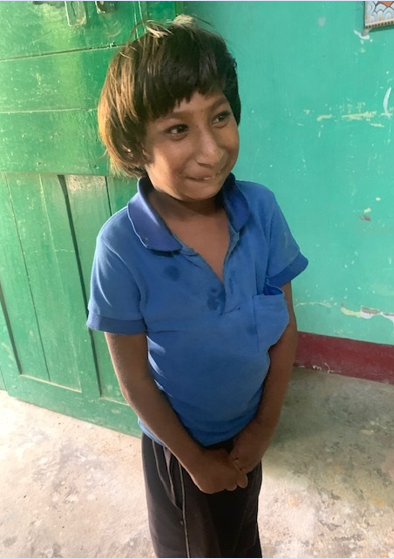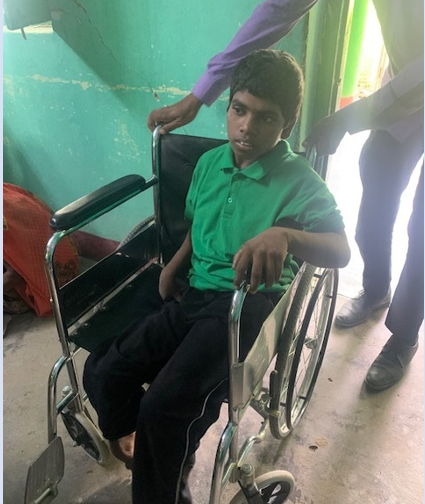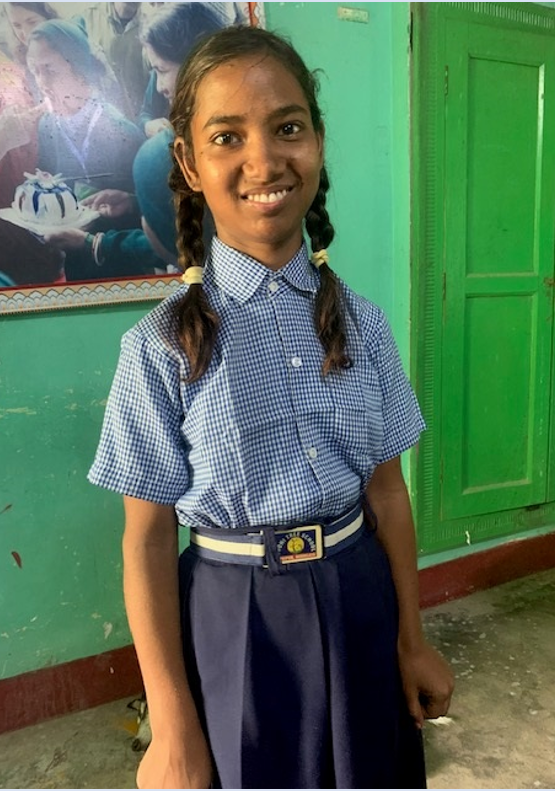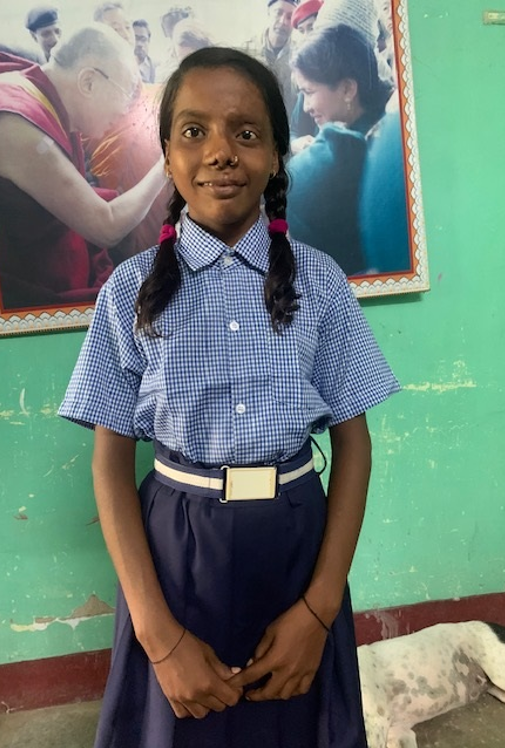Meet Some of the Children
It's easy to say that every Child is Special.
But we really do believe it!
So please come and meet some of our truly special children.
RADHA
Radha is a 16 year old girl with cerebral palsy and mental challenges – prior to going to the school her mother paid no attention to her needs or hygiene and no emotional love. Her mother just viewed her as bad luck and an embarrassment- she mostly remained in the house. The villagers called her “Pablo” which meant “mad”.
The mother at first didn’t want her to go to school as she didn’t want to have to get her ready in the morning and thought school for Radha was a waste of time, but because the school offered medicine the mother agreed.
Radha has now been at school 6 years. When she first arrived, she was lying on the ground, appearing to be sleeping and not interacting with those around her. After just 6 months, she showed rapid improvements and now smiles frequently. Her mother now gets her ready for school and attends school functions, she does not hit her anymore and has become very tolerant of her daughter.
KAJAL
Kajal comes from a very poor family. When she was born her mother thought she looked like a monkey so left her at the hospital and refused to take her home. Her father tried to throw her out of the hospital window. The grandfather took the child - she still hasn’t met her father or mother. Kajal’s grandfather bought a cow so he could feed her cow milk as her mother would not see her.
Her grandfather tried to send her to a government school but they rejected her because they said she behaved like a monkey - scratching and jumping around.
5 years ago, the school had a search team to identify kids in nearby villages and they found her. No one in the village knew her name as she was just known as the “Female Monkey”
Her Grandfather was delighted that she could go to the Bodhi Tree School. The school did some assessments and identified her as having Hutchison-Gilford Progeria Syndrome (https://en.wikipedia.org/wiki/Progeria) so contacted the head of genetic diseases at Harvard University who will now be coming to the school later in the year to do further tests.
She has been at school 5 years and she is now 11 years old. When she first came to the school it was hard for her to be around other kids - she was biting ,hitting, scratching and climbing over the other children. She initially needed medication- X-rays ECG etc. It-took 2 years to start seeing signs of behavioural change – now there are no behavioural problems 70 percent of the time. The attitude of villages and other kids at school has changed and they don’t tease her anymore. Her grandfather has always called her by her proper name and now the villagers and other kids do too.
DAULATI
Daulati is 15 years old. Her father left her mother when she was born as the doctors told her all her children would have the same issues. Her mother left her all day on her own in a room while she worked in the fields. She was tied by a rope around her neck. When the school initially reached out to the mother, she denied having a daughter and wouldn’t allow the school to meet her. The school contacted authorities who persuaded the mother to let her go to school. She has been evaluated as having seizures, mental disabilities and malnutrition. The doctors said her legs could have been functional if she had had treatment since age of 6 but it is too late now.
Daulati was called “Bagali” which means “mad/crazy girl”. When found, she was not even dressed and her mother wasn’t cooperative as she thought Daulati had brought misery to the family. Daulati has been at school for 6 years now. When she first came to the school, she was mostly sleeping or just lying down as that was how she was before tied up at home. Since then, there have been may positive changes. After a couple of weeks, Daulati started showing traces of a smile. The school’s special educator’s assisted with washing her and brushing her teeth, gave her medication daily and have helped her start to walk.
Daulati’s mother’s attitude has improved, especially when she saw that there were other mothers with disabled children (she even brushes her teeth now). There have been many other positive changes including a shift in community views and encouraging confidence in parents of disabled children to expose children to the community and promotion of the gradual process towards inclusion in society.
Daulati smiles often now and no longer has frequent seizures.
NOTU
Notu is 11 and she came to the school 6 years ago.
She had poor gross motor skills and speech issues with a mild learning disability. Before coming to the school she was left on her own at home, no mixing with other kids or socialization.
Since coming to the school there has been a massive improvement. She tells me she feels full confidence and loves studying. At the start she was very shy and would hide, not looking at you as she was embarrassed and fearful as she couldn’t talk. The school gave her medication and started speech therapy and she started trying to talk and improve. After 1 year she was included in the normal school. Her parents said at the start that she was not fit for study. The parents are now proud of her going to school with the rest of the kids. She has grown in confidence and her parents now look at her as a normal child.
KAJAN
Kajan was identified with mild disability. She has been at the school for 6 years. She is 11 years old.
Before she started at the school, she was mocked by other kids and was scared all the time. She very quickly responded to love and appreciation as no one was laughing at her. She had excellent development in improving her speech. I asked her, “what is the best thing about school?” and she replied with a smile “everything.”
4 years ago, she was transferred to the regular school and now is doing very well in her studies.
She wants to work for the community as a teacher after school and says the teachers are very nice and friendly.
